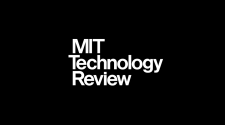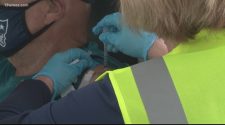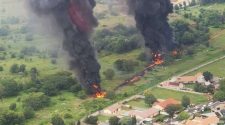- The Fourth Industrial Revolution can’t be a panacea for the problems caused by our obsession with unchecked economic growth.
- We need instead a concerted effort to reset our economic systems and make some hard choices about our future paths.
- An approach I call ‘insured resilience’ could be the answer we need. Here’s a guide.
Over the past couple of decades, the world has become enamoured with the transformative power of technology, and the belief that it can be the panacea for all human challenges.
The COVID-19 pandemic has upended this narrative, however. In spite of all the hype, digital technology could not prevent nor control the spread of the coronavirus. Instead, sound policy interventions, accessible healthcare, devoted professionals and good common sense are what have flattened curves. The technology that controlled the infection wasn’t a fancy contact tracing app, but instead the simple face mask.
The tech scene has been buzzing for a few years about the Fourth Industrial Revolution, a supposed technological transformation characterised by big data, artificial intelligence and automation.
But the last thing the world needs is another ‘revolution’ that ignores the external cost to society of our unchecked obsession with economic growth at all cost. Technology won’t solve the climate crisis, prevent the recurring wildfires in the US, heal social divides or resolve social inequality. Only a concerted effort to reset our economic systems and a willingness to make hard choices about priorities will do that.
The world needs a different ‘IR’ – something I call ‘insured resilience’. The word ‘insured’ means to secure or protect someone against a possible contingency; in this case, the economic, social and climatic trends we face in the 21st century, particularly those arising from unsustainable resource overexploitation, the crisis of consumption-led capitalism, biodiversity losses, and climate change.
‘Resilience’, in contrast, denotes society’s ability to withstand and recover from these shocks when they occur. Together, insured resilience frames a society designed to both prevent and protect against crisis, and to recover quickly from damage.
Previous industrial revolutions may have led to greater productivity and increased living standards, but they also contributed to our current predicament. They allowed resources to be exploited at a faster rate, and enabled the mass consumption that contributes to pollution, wastage, loss of biodiversity and arable land, urban crowding and the other social injustices we see in the world today.
If the Fourth Industrial Revolution is similarly transformative – itself an unproven claim – would that be something the world truly needs now? The pandemic shows that we need to reset our priorities towards better serving the global majority with limited access to basic needs, and doing that by respecting limits.
What should our priorities be?
Safety and security are the basis of insured resilience 1.0: an approach to human progress that insures society against shocks in order to build safe and secure communities. This is not a stockpile of goods or a reserve of funds, but rather an economic restructuring so that everyone’s basic needs are met, natural systems are preserved, and social safety nets are established.
Insured resilience means that a country must be able to provide for itself in times of need, such as when global supply chains are disrupted. The pandemic has shown that those at the bottom-of-the-pyramid are often disproportionately affected by shocks. Governments need to step in with economic policies to ensure that common public goods, like healthcare, housing, education, food, water and energy, are provided equitably. Some rights cannot be left to market forces.
Then there are the external impacts directly caused by technological development. In places with persistently high rates of unemployment and underemployment, automation and artificial intelligence cannot be allowed to be endlessly ‘disruptive’. Governments need to offer people proper alternatives and opportunities to reskill and upskill. And if governments are willing to give tax breaks to the rich to spur investments and spending, then why can’t they tax robots to manage employment?
We should not see technological advancement and human progress as the same thing; after all, billions of people in many parts of the world still lack stable electricity, clean water, and homes with sanitary toilets. For example, the pandemic has shown us that good sanitation and waste-treatment systems should be implemented in both urban and rural areas as a top priority.

Technological advancement and human progress are not the same thing
Image: Our World in Data
In recent years, the consequences of our assault on the biosphere have become clear: from the spread of zoonotic diseases and locust outbreaks to permanent damage to riverways and fertile soil. The overuse of chemicals, deforestation, climate change and other human factors has led to the loss of one-third of all arable land over the past 40 years.
Food security is of utmost importance in an increasingly crowded world. A vibrant rural economy must be maintained to prevent people from leaving the countryside in search of better jobs in the city. China knows this lesson better than any other nation in the world, as shown by their recent campaign to tackle food waste, which will have a significant effect on how it grows, processes and consumes food.
But insured resilience needs more than just government efforts. All stakeholders need to be concerned with collective welfare. Societies where people take it upon themselves to protect each other from harm fare better than those with a more individualistic culture: compare outcomes in Hong Kong, Viet Nam and South Korea with the United Kingdom and the United States.
Technology doesn’t create a stable society with rules, norms and values. Instead, such a society is the product of social contracts built between the different pillars of society, such as the government, the private sector, civil society and ordinary citizens. In these societies, there is an acute understanding of when and how to best put collective welfare ahead of individual rights.
To support collective welfare, society must protect the commons – the air, the fisheries, forests, rivers and all other natural resources — for future generations, and insure the world against natural shocks like climate change and pandemics.
The first global pandemic in more than 100 years, COVID-19 has spread throughout the world at an unprecedented speed. At the time of writing, 4.5 million cases have been confirmed and more than 300,000 people have died due to the virus.
As countries seek to recover, some of the more long-term economic, business, environmental, societal and technological challenges and opportunities are just beginning to become visible.
To help all stakeholders – communities, governments, businesses and individuals understand the emerging risks and follow-on effects generated by the impact of the coronavirus pandemic, the World Economic Forum, in collaboration with Marsh and McLennan and Zurich Insurance Group, has launched its COVID-19 Risks Outlook: A Preliminary Mapping and its Implications – a companion for decision-makers, building on the Forum’s annual Global Risks Report.

The report reveals that the economic impact of COVID-19 is dominating companies’ risks perceptions.
Companies are invited to join the Forum’s work to help manage the identified emerging risks of COVID-19 across industries to shape a better future. Read the full COVID-19 Risks Outlook: A Preliminary Mapping and its Implications report here, and our impact story with further information.
Insured resilience is not a rejection of new technologies. Many of the technologies of the Fourth Industrial Revolution could be used to revitalise ecologies, protect the commons, and sustain livelihoods. For example, drones could be used to help farmers dramatically reduce the use of chemicals like fertiliser; education technologies could be used to facilitate skilling; and sensors used in the Internet of Things can help to monitor carbon emissions and ensure consumers pay for their externalities, such as excessive air conditioning and water usage.
The pandemic should teach us that when it comes to preventing a global crisis, we can’t wait for a revolutionary technology to come save the day. Instead, countries need a development approach that integrates resilience into their economic planning and protects communities from external shocks, helping them recover from disaster better than before: insured resilience.


















